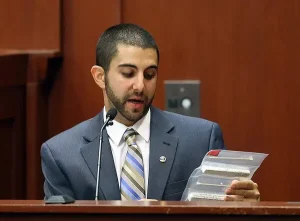Prosecutors and defense attorneys regularly rely on expert witnesses to explain evidence that benefits from specialized knowledge. That may involve reviewing things like breath and blood testing procedures, DUI retrograde extrapolation, accident reconstruction,  and medical conditions that could affect impairment assessments. This article examines the different types of experts used in North Carolina DWI cases, how courts determine whether their testimony is admissible under Rule 702, and what legal considerations apply when presenting expert evidence in court.
and medical conditions that could affect impairment assessments. This article examines the different types of experts used in North Carolina DWI cases, how courts determine whether their testimony is admissible under Rule 702, and what legal considerations apply when presenting expert evidence in court.
Understanding these issues can help if you’re facing a DWI charge. Expert testimony can play a significant role in North Carolina Driving While Impaired (DWI) cases, particularly when scientific, medical, or technical issues arise. Whether challenging the accuracy of a chemical test, questioning how an arrest was conducted, or providing insight into how a collision occurred, experts may help clarify complex evidence for a judge or jury.
 Carolina Criminal Defense & DUI Lawyer Updates
Carolina Criminal Defense & DUI Lawyer Updates screening at the roadside and an evidentiary test under the state’s implied consent laws. These procedures are guided by statutes like G.S. 20-16.2, which defines the expectations placed on a driver once probable cause is established. Although both tests relate to detecting alcohol, they serve different functions and carry different legal consequences.
screening at the roadside and an evidentiary test under the state’s implied consent laws. These procedures are guided by statutes like G.S. 20-16.2, which defines the expectations placed on a driver once probable cause is established. Although both tests relate to detecting alcohol, they serve different functions and carry different legal consequences.